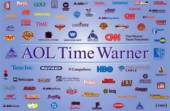In America, the ideals of free speech and freedom of the press are drilled into our heads from an early age. We are conditioned to believe that we have the most free and open society in the world.
Our media is supposed to be the most diverse and open in the world, representing the open debate of “Democracy.” Up against such conditioning, it seems unthinkable that there could be widespread censorship or propaganda in the American media.
The media includes not only news and journalism but also entertainment, film, television, radio, books, the internet–any tool by which information can be disseminated.
Underground media can include postering, pirate radio, stickers, graffiti, protesting, publicity stunts, street theater, and any other approach you can think of. The disparity between people based media and corporate mass media is so great that one might conclude that we do not have free speech in this country but rather free speech by the rich and powerful.
The theory of a “marketplace of ideas” holds that the truth arises out of the competition of ideas in an open market. This concept is often cited as a rationale for freedom of expression. A parallel of free market economics–supposedly the “best” ideas or the “truth” will win out over inferior and false ideas.
The problem with this theory is that the market simply isn’t free. Some ideas are never heard and others have millions of dollars of promotion behind them. Institutional voices control the conversation and rarely allow for honest discussion of alternatives.
In a democratic society, the media must play the essential role of spreading information, asking questions, debating issues, and seeking the truth.
Mass media seems to be a necessary piece of a large, complex society in which face to face or grassroots communication is not feasible.The problem is that because of the expenses (and also the opportunity for profits), and technological complexity, mass media are becoming controlled by fewer and fewer people.
What was once supposed to be an extension of community debate and free speech among citizens is now mostly a one-way conversation, in which powerful forces–corporations, the government, money–get to dictate to the people what is important, what they should know and care about, and essentially what their reality is.
The airwaves–the electromagnetic spectrum over which TV and radio broadcast–are supposed to belong to the public. The corporations that have been given the rights to these airwaves are supposed operate in the interest of the public. They have failed.
What we have now is a system of complicit control and propaganda between powerful corporate and governmental interests. Refusing to accept corporate propaganda, taking back the media, and becoming the media are the first steps toward a real democracy.
